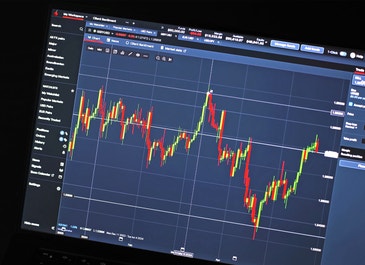The forex market, often known as the international change or FX industry, is the biggest financial market in the world. With a regular forex trading quantity exceeding $7.5 billion as of 2022, based on information from the Bank for International Settlements (BIS), it dwarfs all the financial markets. But how can that immense trading task ripple through global economic markets? The partnership is complex but unquestionably influential.
Forex Trading and Currency Volatility
One of the very immediate impacts of forex trading is currency volatility. Currency couples like EUR/USD or USD/JPY are very painful and sensitive to economic data produces, geopolitical functions, and main bank policies. For example, the headline of a shift in U.S. Federal Hold fascination costs often sparks substantial changes in the U.S. money, creating ripple results across different currencies.
Based on IMF data, emerging industry currencies found a 12.5% average depreciation from the U.S. buck between 2020 and 2022, showing how global forex activity and macroeconomic adjustments are interconnected.
Impact on International Deal
Forex trading significantly influences global trade dynamics. Trade costs dictate the relative cost of things and solutions between nations. Think about this case: If the Japanese yen weakens against the euro, Western exports to the eurozone may be much more desirable due to reduce charges, providing Japanese firms a competitive edge.
Knowledge from the Earth Deal Business (WTO) demonstrates currency rate fluctuations accounted for a 7% difference in world wide deal sizes all through 2021 alone. That shows how forex market movements form global deal flows.
Industry Liquidity and Economic Security
Forex trading offers liquidity, ensuring that firms and governments can quickly trade currencies for trade and investment purposes. Nevertheless, excessive speculative activity in forex areas may sporadically pose risks. For instance, speculative episodes on currencies have traditionally resulted in significant financial crises, including the 1997 Asian Economic Situation, when a few Southeast Asian currencies crashed.
In accordance with a BIS record, heightened speculative activity contributed to 18% of most emerging market currency crises between 1990 and 2020, underscoring the importance of healthy forex trading.

The Role of Key Banks
Central banks around the world positively participate in forex markets to secure their currencies and control inflation. By buying or selling currencies, central banks effect exchange costs and foreign reserves. For instance, during 2022, the Bank of Japan had to intervene in the forex market to support the yen, noticing its first such activity in over two decades.
These interventions have a cascading effect, impacting global expense portfolios and also influencing inventory and connect markets.
Forex trading is more than just currency trade; it is a process that ties global economies together. Its influences on economic areas are both active and far-reaching, which makes it a critical region to watch in today's interconnected economic landscape.
